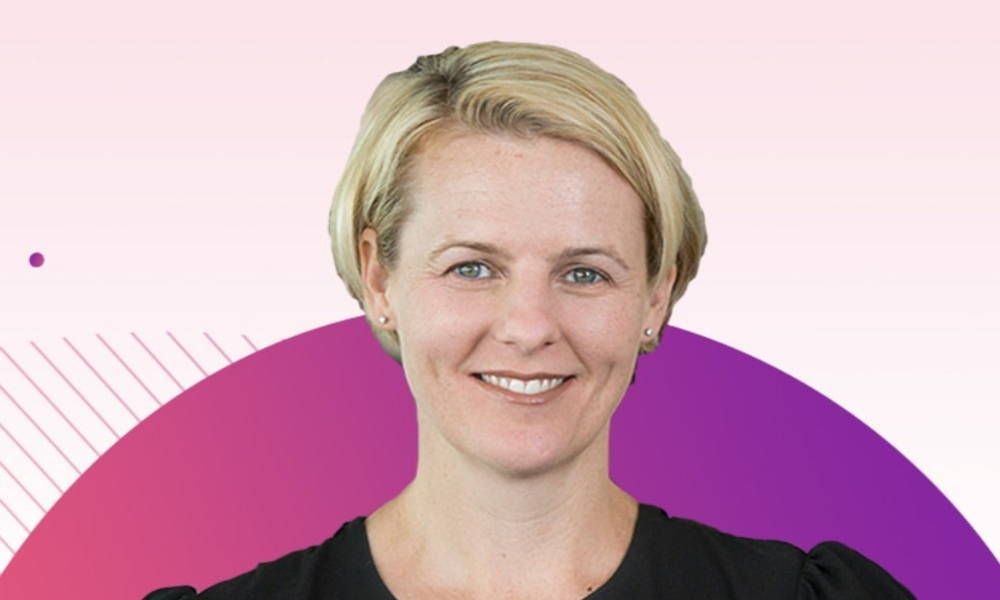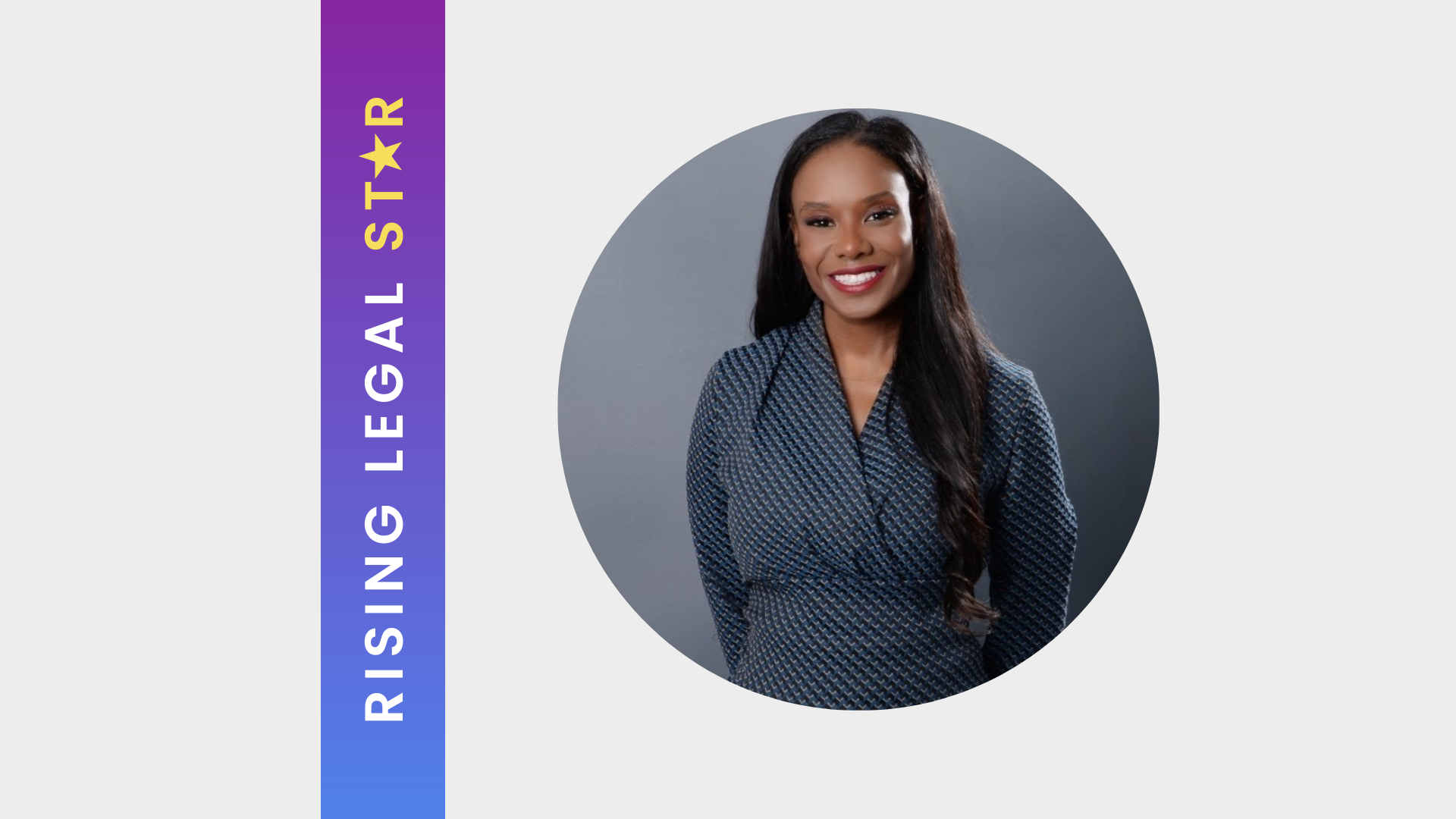Elements - Diversity & Inclusion: Miriam Andrews
Miriam Andrews is a Partner in Buddle Findlay's Banking and Finance team. In this role, she specialises in banking and finance, with a focus on leveraged and acquisition finance, agri-business, syndicated lending, asset sale and purchase and restructuring. She also advises lenders on cross-border lending and property finance transactions.
Does your firm tackle gender diversity with any programs or flexible conditions?

At our law firm, I think gender is considered the easiest diversity element to tackle. I don’t think this is necessarily true - but maybe it’s the easiest and more obvious thing to measure. In saying that, we don’t have a Women in Leadership program or any programs or groups specifically for women – our diversity initiatives are broader and try to cover all elements of diversity. Within the profession, there are many groups targeted at women (that we as a firm are involved with) – including the Auckland Women Lawyers' Association and Women in Insolvency and Restructuring. Our firm does offer flexible working - I work from home one day a
week, and we’re replicating that with the male partners in our group too, which they have bought into. Men in our industry have just as much of a role to play in this. Men today want more responsibility for the domestic side of life and the sooner that happens, the more change we will see for women in the industry.
–
Do you find in New Zealand that the male/female representation issue is more pronounced at certain levels?
It’s hugely pronounced at Partner level (74% of our partnership is male). In New Zealand, we have had more women than men coming out of law school since the early 1990s – this year, our firm didn’t have any male graduates in Auckland (our biggest office) and over the past seven years, our graduate recruits, on average, have been at least 70% women. We see that majority represented up to about Senior Associate level (over 65% of our Senior Associates are women), but it’s that next step up to Partner where we see the numbers change. Most law firms in NZ have around 20%-30% female partners, and though that is increasing, it’s still a big discrepancy. The drop-off rates must be interesting because at Senior Partner level, it’s almost all male.
–
There seems to be an increasing trend for young Partners now and that those in their 50s and 60s might be seen as too old?
I have real concerns about the fact that we are starting to stop valuing people when they are at the top of their game. It’s potentially even worse for women who may have had a career break to raise a family. If they come back to face a cap or a mandatory retirement age, which at law firms can be very young, then you’re creating a system where women are never going to get to the top in time or be the boss for very long.
–
Have you noticed any differences around progressive workplace attitudes between geographies or between companies like law firms and corporates?
I think the UK has better employee benefits than New Zealand, such as the amount of holiday you get, and significantly better maternity leave terms, but I think we are ahead in terms of not having that hierarchical class structure. We are much more informal, which can make things easier. I think banks have been more progressive than law firms over time. For example, when I was at Lehman Brothers back in 2005, I had a female reporting line, there were groups supporting women in leadership and everyone had mandatory unconscious bias training. It seems that investment banks, particularly American ones, have been ahead of the curve for a while.
–
Have you had any mentors in your career? And do you think all female leaders are supportive in the same way?
My boss at Lehman Brothers was an amazing, supportive mentor and role model who wanted to make things easier for the next generation. However, I have seen both sides of the coin – her boss for example, was definitely “closing the door behind her”, but she was from a very different generational perspective. The women in the generation above me seem to believe that they got to where they were by acting like a man and so their advice would be to do that. My mentor’s boss didn’t even stop work to have her children, they really were polar opposites! My generation is much more supportive and collaborative, though some people believe that the supportive stance can actually be detrimental to your own career progression in some areas. For example, if you become seen as a mother-figure role model in the organisation, then that can hinder your progression or hold you back in other areas.
–
In TV and film, senior law professionals are always portrayed as having male characteristics. Has that ever been a problem for you?
Yes, I’ve seen a lot of unconscious bias because of that. I’ve had private equity clients, for example, who are very aggressive professionally, and that’s what they are looking for in a lawyer. When I take that approach I find that I'm tarred with a negative brush in a way that my male colleagues taking the same approach are not. I also find that the drinking culture can exacerbate the 'old boys club' to the detriment of female lawyers.
–
Is there anything formal in place at your firm to position themselves as leading the way in diversity?
We have a national Diversity & Inclusion committee who drive various initiatives in this space. For example we recently gained the Rainbow Tick, ran a series of fora on safety, wellbeing and culture, and undertook at national culture survey. We also have local sub-committees that feed into our national committee in order to ensure everyone has an opportunity to contribute to our D&I strategy.
We are also establishing relationships within the Maori and Pacific Island students’ associations at the Universities. We met with them in 2018 to understand why we were not receiving many applications through our graduate recruitment process. They talked about some of the reasons and barriers and we’re working to strengthen current relationships and build new ones through support of these associations by way of sponsorship and discussion.
We are looking at masking information on CV’s to eliminate bias. One of the difficulties we have is that New Zealand is very small, and we know most of the women in the sector, so from a gender point of view, that’s not very helpful. Similarly, at Senior Associate level, we will usually already know the person. At the moment, there is a really strong demand for Senior Associates, so I don’t think there is bias when it comes to hiring. Aside from gender, we’ve also looked at blanking out details such as prestigious schools in the interests of fairness.
–
So, socio-economic diversity?
In the last 20 years in New Zealand, there’s been a real divide between the haves and the have-nots, and we’ve become much more aware of income inequality, so it’s going to become an important driver. When you realise all your colleagues are from the same prestigious schools, then it’s time to look at the diversity of people representing different economic backgrounds. Those students are held back from getting into the system by not having friends whose dads are partners in law firms giving them a hand. Furthermore, people from the prestigious schools and backgrounds have often had things come easier to them in life, which actually is a negative, compared to someone who has had to fight to get to law school. We’re also trying to think outside the box around applications, considering ideas such as bypassing the written application system with the chance to answer a question on video, for example. Late last year, because of our relationship with the Halberg Foundation, we found out that members of their Youth Council, mostly university students, find it difficult to get work experience so, with the Foundation, we created the Buddle Findlay & Halberg Career Experience programme. Our main objective is to assist the university students from the Council, who all have physical disabilities, to gain practical work experience. The work experience will take place at Buddle Findlay’s three offices in June and July and if it is a success, we may also roll out the program to our clients too because obviously not everyone wants an opportunity in law.
–
What's next in terms of change?
I think that law firms have been successful recently with flexibility and technology has been an important part of that. There is more recognition that you don’t need to be sitting in the office to do legal work, and face-to-face meetings happen less frequently. I think the next step will be looking at how we bill clients in terms of value rather than just in terms of hours. Law firms are very bad at presenteeism, so we need to grow the culture of visible leavers from the top. ‘Leaving loudly’ needs everyone to buy into it, it can’t just be the female partners leaving to deal with family, it needs to be across the board, and I can see this being adopted in the near future.New Paragraph
Our latest insights







